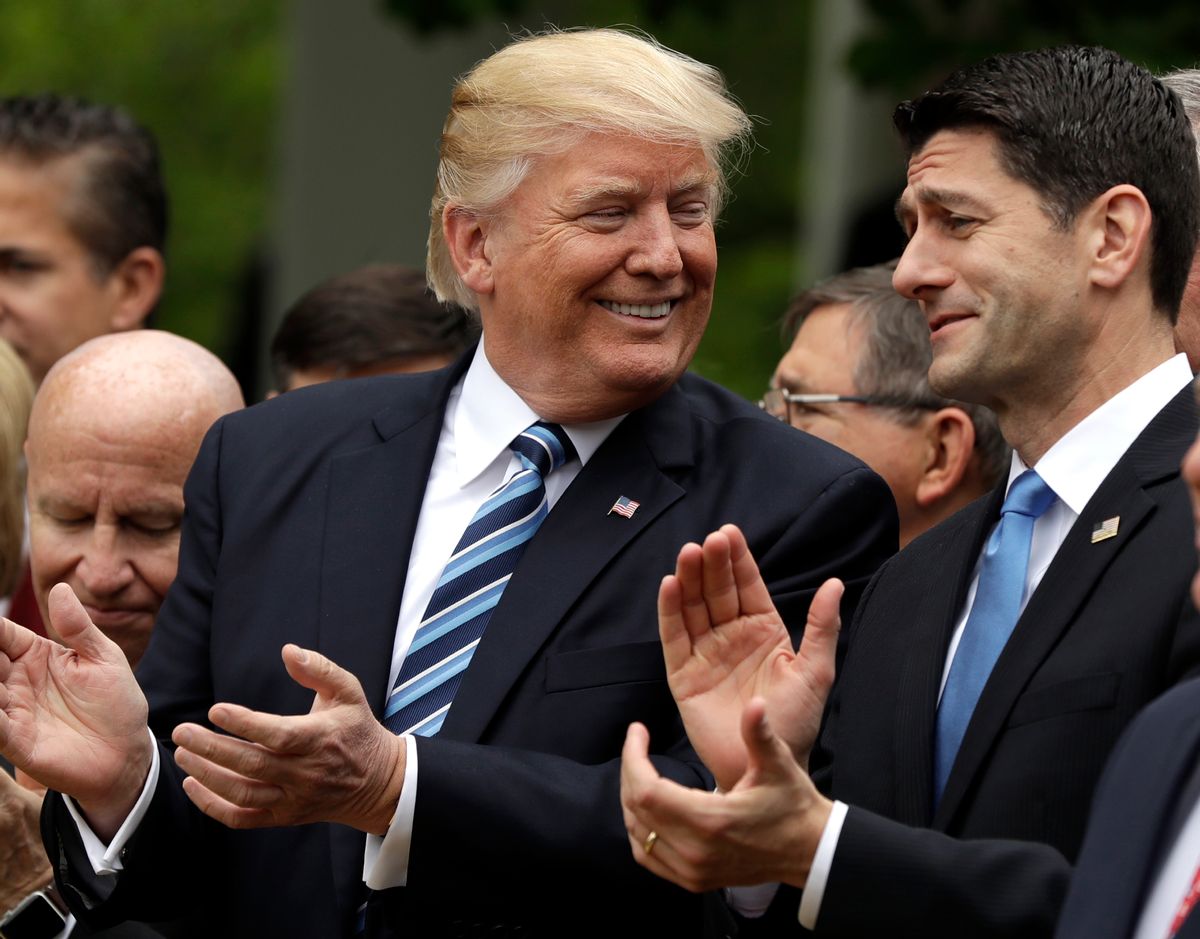House Republicans are proposing a balanced budget amendment to the Constitution that, though unlikely to pass, they hope will inoculate them from charges of being spendthrifts after they pushed through a tax reform bill that cost more than $1 trillion.
The GOP plans to unveil its new idea when it returns from its recess, according to Politico. At first glance, the decision to do this seems absurd; given the state of political gridlock in Washington, it is highly unlikely that the Republican Party will be able to pass any substantive legislation, much less a constitutional amendment (which requires two-thirds majorities in both chambers of Congress or a constitutional convention by two-thirds of the states). That said, given that Republican voters tend to emphasize fiscal conservatism — and the GOP-run Congress has little in the way of genuine financial conservatism to show for this session, simply voting for a balanced budget amendment could be enough for Republican lawmakers to impress their constituents.
Selling the idea that Republicans suddenly care about the budget deficit again won't be easy. For one thing, the Republican-controlled Congress recently agreed to pass a $1.3 trillion omnibus spending bill that was deeply unpopular on both sides of the aisle, according to Politico. The bill was in many ways held in lower regard by Republicans than by Democrats, which was perceived by many as more of a continuation of President Barack Obama's spending priorities than those of President Donald Trump. This prompted House Minority Leader Nancy Pelosi and Senate Minority Leader Chuck Schumer to praise the bill as "job-creating, life-saving investments stand[ing] in sharp contrast to the Trump budget."
Trump himself complained about the bill after signing it into law last week, indicating that the president's populist instincts are bucking against the new spending plan.
"While we’re very disappointed in the $1.3 trillion — nobody more disappointed than me, because the number is so large, it’ll start coming down — we had no choice but to fund our military, because we have to have by far the strongest military in the world and this will be, by far, the strongest military that we’ve ever had," Trump explained at the time, in terms of why he signed the omnibus bill into law.
He added that, although he had considered vetoing the measure, "I looked very seriously at the veto. I was thinking about doing the veto. But because of the incredible gains that we’ve been able to make for the military, that overrode any of our thinking."
The omnibus bill isn't the only piece of legislation that would undercut Republican claims to fiscal responsibility. The much-touted tax reform plan passed in December would, according to one estimate by the Treasury Department, cost $2.3 trillion over the next 10 years, with a projected revenue shortfall of anywhere from $700 billion to $1.3 trillion as a result. Although Republicans have repeatedly claimed that their tax bill would pay for itself, even the most generous reputable analyses have disputed that assertion, making the tax reform package less an act of fiscal responsibility and more a handout to the affluent.
Nor was this the only occasion that Republicans put other aspects of their economic agenda over a need for fiscal responsibility. Before Trump became president, the GOP considered using the budget reconciliation process to repeal Obamacare — but if they had done so, it would have led to a $9 trillion increase in the national deficit by 2026.
The underlying strategy behind balanced budget deficits and massive tax cuts, of course, is the one appropriately dubbed "starve the beast." Employed by conservative Republicans since the 1970s, "starving the beast" refers to the idea that you can reduce or entirely eliminate social welfare programs by cutting taxes so much that people need to slash so-called "entitlements" in order to avoid major deficits. Since the presidency of Ronald Reagan, however, this approach has rarely proved entirely effective, as Democrats are usually able to preserve at least some of social welfare spending. As a consequence, the "starve the beast" approach has historically tended to simply lead to astronomical budget deficits.

Shares